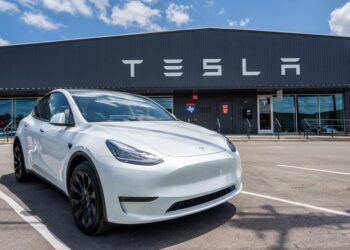The electric car market has experienced a remarkable transformation in recent years, with 2024 marking a significant milestone. This surge in popularity of electric vehicles (EVs) is driven by a combination of factors. Environmental concerns have taken center stage, encouraging both consumers and manufacturers to seek sustainable alternatives to traditional internal combustion engines. The urgency to reduce carbon emissions and combat climate change has positioned EVs as a viable solution.
Advancements in technology have also played a pivotal role in the adoption of electric cars. Innovations in battery technology have substantially extended the range of EVs, making them more practical for daily use and long-distance travel. Improvements in charging infrastructure, including the proliferation of fast-charging stations, have addressed one of the primary apprehensions of potential buyers. Additionally, the integration of cutting-edge features such as autonomous driving capabilities and advanced infotainment systems has elevated the overall driving experience.
Supportive government policies have further accelerated the shift towards electric vehicles. Many countries have implemented stringent emission regulations, offering incentives and subsidies to both manufacturers and consumers. These initiatives aim to make electric cars more accessible and affordable, thereby encouraging wider adoption. Tax credits, rebates, and grants have made a tangible impact on the market, bolstering consumer confidence and driving demand.
When identifying the top-rated electric cars of 2024, several key criteria are considered. Range remains a crucial factor, as it directly influences the practicality of an EV. Performance aspects, including acceleration and handling, are evaluated to ensure a dynamic driving experience. Design elements, both interior and exterior, play a significant role in attracting consumers. Safety features are paramount, with advanced driver-assistance systems and crash test ratings being critical considerations. Lastly, customer reviews provide valuable insights into real-world experiences and satisfaction levels.
Tesla Model S Plaid
Tesla continues to dominate the electric vehicle market with the Model S Plaid. This luxury sedan boasts a remarkable range of 396 miles on a single charge. The Model S Plaid can accelerate from 0 to 60 mph in just under 2 seconds, making it one of the fastest electric cars available. Its standout features include a minimalist interior with a 17-inch touchscreen and advanced autopilot capabilities.
Lucid Air Dream Edition
The Lucid Air Dream Edition is a strong competitor in the luxury electric sedan category. With a range of up to 520 miles, it surpasses many of its peers. The car features a 1,111 horsepower engine and can achieve a top speed of 168 mph. Inside, you’ll find a spacious cabin, advanced driver-assistance systems, and a 34-inch curved Glass Cockpit 5K display.
Ford Mustang Mach-E
Ford’s Mustang Mach-E is an electric SUV that combines performance with practicality. It offers a range of up to 305 miles and can reach 60 mph in around 4.8 seconds. The Mach-E comes with a 15.5-inch touchscreen and supports over-the-air updates. Its standout feature is the wide range of driving modes, including the exhilarating Unbridled mode.
Porsche Taycan 4S
For those seeking performance and luxury, the Porsche Taycan 4S is an excellent choice. This electric sports car provides a range of around 227 miles and can hit 60 mph in 3.8 seconds. Its interior is luxurious, featuring a curved 16.8-inch display and a range of customizable options. The Taycan 4S stands out with its dynamic handling and high-speed charging capabilities.
Chevrolet Bolt EV
The Chevrolet Bolt EV is an affordable compact car that offers a balanced mix of range and performance. With a range of 259 miles, it suits both city commutes and longer trips. The Bolt EV can charge up to 100 miles in 30 minutes using DC fast charging. Its standout features include a 10.2-inch infotainment system and a roomy interior, making it an excellent choice for small families.
Nissan Ariya
Nissan’s Ariya is an innovative electric SUV designed for comfort and efficiency. It offers a range of up to 300 miles and features a dual-motor all-wheel-drive system. The Ariya can accelerate from 0 to 60 mph in approximately 5 seconds. Inside, it boasts a minimalist design with dual 12.3-inch displays and ProPILOT 2.0 advanced driver assistance.
BMW iX
The BMW iX is a luxury electric SUV that combines sustainability with performance. It offers a range of up to 324 miles and can achieve 60 mph in 4.4 seconds. The iX features a spacious, high-tech interior with a panoramic sunroof, a 14.9-inch touchscreen, and advanced driver assistance systems. Its standout feature is the use of sustainable materials throughout the interior.
Kia EV6
Kia’s EV6 is an innovative electric crossover that offers a range of up to 310 miles. It can accelerate from 0 to 60 mph in 5.1 seconds, making it a sporty choice for an everyday car. The EV6 features a 12.3-inch dual cockpit screen and supports ultra-fast charging, adding up to 210 miles of range in just 18 minutes. Its standout feature is the spacious and flexible interior.
Rivian R1T
The Rivian R1T is a versatile electric pickup truck that stands out for its off-road capabilities. It offers a range of up to 314 miles and can tow up to 11,000 pounds. The R1T features a quad-motor system, delivering 0 to 60 mph in approximately 3 seconds. Inside, it offers a 15.6-inch touchscreen and a Gear Tunnel for additional storage, making it ideal for outdoor enthusiasts.
Hyundai Ioniq 5
The Hyundai Ioniq 5 is a forward-thinking electric SUV with a range of up to 303 miles. It can reach 60 mph in around 5.2 seconds and supports ultra-fast charging, adding up to 68 miles in 5 minutes. The Ioniq 5 features a spacious, eco-friendly interior with a 12.3-inch touchscreen and advanced driver assistance systems. Its standout feature is the Vehicle-to-Load (V2L) functionality, allowing it to power other devices.
Electric Cars: Comparison of Features and Performance
When examining the top-rated electric cars of 2024, a comparative analysis of their features and performance reveals a diverse array of strengths and weaknesses. Key aspects to consider include battery life, range, charging infrastructure, design elements, technological integrations, and overall performance.
Battery life and range are crucial factors for electric car enthusiasts. For instance, the Tesla Model S boasts an impressive range of up to 400 miles on a single charge, thanks to its advanced battery technology. In contrast, the Nissan Leaf offers a more modest range of around 226 miles, which may be sufficient for daily commuting but less ideal for long-distance travel.
Charging infrastructure also varies significantly among these vehicles. Tesla’s extensive Supercharger network provides fast and convenient charging options across the globe. Meanwhile, newer entrants like the Rivian R1T are gradually expanding their charging networks, though they currently lag behind established players.
Interior and exterior design are other critical differentiators. The Audi e-tron GT stands out with its luxurious and sporty design, featuring high-quality materials and a sleek, aerodynamic exterior. On the other hand, the Ford Mustang Mach-E offers a blend of modern and retro aesthetics, appealing to a different segment of consumers.
Technological integrations, such as infotainment systems and autonomous driving capabilities, further distinguish these electric cars. The Mercedes-Benz EQS excels in this area, offering a state-of-the-art MBUX Hyperscreen that spans the entire dashboard and advanced driver-assistance systems. In comparison, the Polestar 2 focuses on a minimalist approach with a Google Android-powered infotainment system and essential autonomous features.
Overall performance encompasses acceleration, handling, and driving comfort. The Lucid Air Dream Edition, with its 1,111 horsepower, delivers exhilarating acceleration and smooth handling, positioning it as a top contender in the performance category. Alternatively, the Hyundai Ioniq 5 provides a balanced mix of performance and comfort, making it a practical choice for everyday use.
By assessing these key features and performance metrics, potential buyers can make informed decisions about which electric car aligns best with their preferences and needs.
Future Trends and Considerations for Electric Cars Buyers
As we look toward the future of the electric vehicle (EV) industry, several key trends and considerations emerge that potential buyers should be aware of. One of the most significant advancements is in battery technology. Innovations such as solid-state batteries promise to deliver higher energy densities, faster charging times, and longer lifespans, addressing some of the current limitations of lithium-ion batteries. This development could make electric cars more convenient and cost-effective, enhancing their appeal to a broader audience.
Another crucial trend is the expansion of charging networks. As more charging stations are installed globally, the infrastructure supporting electric vehicles continues to improve. This expansion not only alleviates range anxiety but also supports the practical use of EVs for long-distance travel. Companies and governments are investing heavily in ultra-fast charging stations, which can significantly reduce the time required to recharge an electric car, making them more competitive with traditional gasoline vehicles in terms of convenience.
Upcoming regulatory changes are also poised to impact the electric vehicle market. Governments worldwide are implementing stricter emissions standards and offering various incentives to encourage the adoption of electric cars. These actions include tax credits, rebates, and grants that can significantly reduce the initial purchase price of an EV. Potential buyers should stay informed about these incentives, as they can greatly influence the total cost of ownership.
When choosing the right electric car, buyers need to consider several factors. Individual driving habits and needs should play a central role in the decision-making process. For instance, those with long commutes may prioritize range and charging speed, while urban dwellers might focus on compact size and maneuverability. Evaluating the total cost of ownership, which includes not just the purchase price but also maintenance, insurance, and energy costs, is essential. Additionally, staying updated on potential incentives or rebates can provide significant financial benefits.
By keeping these future trends and considerations in mind, prospective electric car buyers can make more informed decisions, ensuring that their choice aligns with both their current needs and future expectations.











